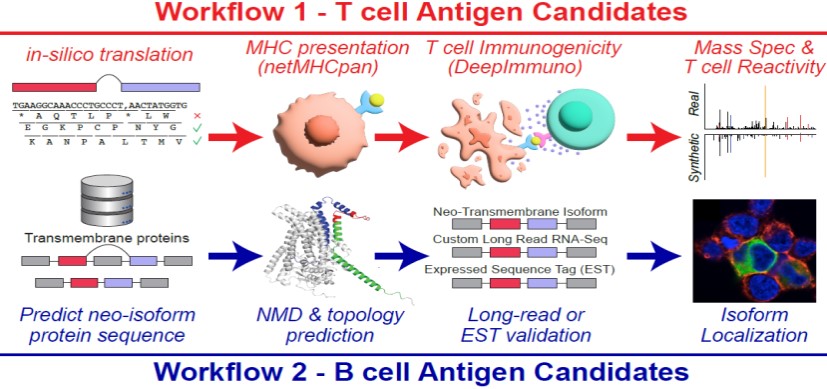Salomonis Receives Endowed Scholar Award
Post Date: October 7, 2019 | Publish Date:
Nathan Salomonis, PhD, Assistant Professor in the Division of Biomedical Informatics, has received the Cincinnati Children’s Research Foundation (CCRF) Endowed Scholar Award.
The CCRF Endowed Scholar Program is designed for Assistant and Associate Professors at Cincinnati Children’s who have demonstrated exceptional academic success in their first years as faculty. Each year, a select few candidates are chosen based on the impact of their scientific contributions. The award is given to recognize and accelerate the success of these emerging leaders in their respective fields.
Salomonis is the first from Biomedical Informatics to be named a CCRF Endowed Scholar. The $1.75 million designation will ensure the continued success of his current research and allow the opportunity for new projects.
High-impact achievements
To understand diverse cancers, researchers must define the genetics behind them. Salomonis and his team are identifying new subtypes of cancer by studying variations in gene splicing. Using computational approaches to detect novel splicing patterns, their work has already uncovered dozens of novel splicing subtypes in diverse cancers. Such findings open the door for new approaches to diagnose and treat patients with subtypes of cancer that are uniquely associated with splicing.

In collaboration with the Grimes Research Lab, Salomonis and his team have developed a series of innovative computational approaches to study cell populations from single-cell RNA-Seq data. The open-access tools include Iterative Clustering and Guide-gene Selection (ICGS) and cellHarmony. These approaches have led to a better understanding of the cells associated with hematopoiesis—the formation of blood cells—in cancer, as well as differences between healthy and diseased cells.
Salomonis has led the production of these and numerous other computational tools that are used by thousands of researchers around the world. In fact, his tools have been applied in more than 2,500 research studies. Collectively, they have enabled:
- The identification and visualization of transcriptional networks and signaling biological pathways in diverse diseases;
- The detection of splicing variation impacting disease pathogenesis and organism development; and
- The streamlined and user-friendly analysis of conventional RNA-Seq and microarray data.
Groundbreaking goals
With the help of CCRF Endowed Scholar funds, Salomonis will continue his research in gene splicing, exploring sequence-directed precision therapies for pediatric cancers that have proven challenging to treat. Gene expression of healthy and diseased cells may illuminate the cancer subtypes that will likely be susceptible to existing therapies. Initially, Salomonis will focus on pediatric AML.
Combining three-dimensional mapping with single-cell genomics technologies brings even greater opportunities to understand complex organ systems on a deeper level. Working with investigators at Cincinnati Children’s and the Children’s Hospital of Philadelphia, Salomonis and his team have begun new Pediatric Cell Atlas initiatives. Using advanced computational workflows to harmonize, integrate, and display data from large-scale tissue mapping efforts, the team aims to define reference tissues at the single-cell level. This data will be used to study pediatric growth, development, and origins of disease.
As computational tools gain complexity, the flood of genomics data continues to grow. Mass ingestion and collation of this data is becoming increasingly important. In collaboration with researchers across institutions, Salomonis aims to create new web and cloud platforms that are accessible for all in the research community. Improved harmonization and integration of data will accelerate research at Cincinnati Children’s and beyond.






